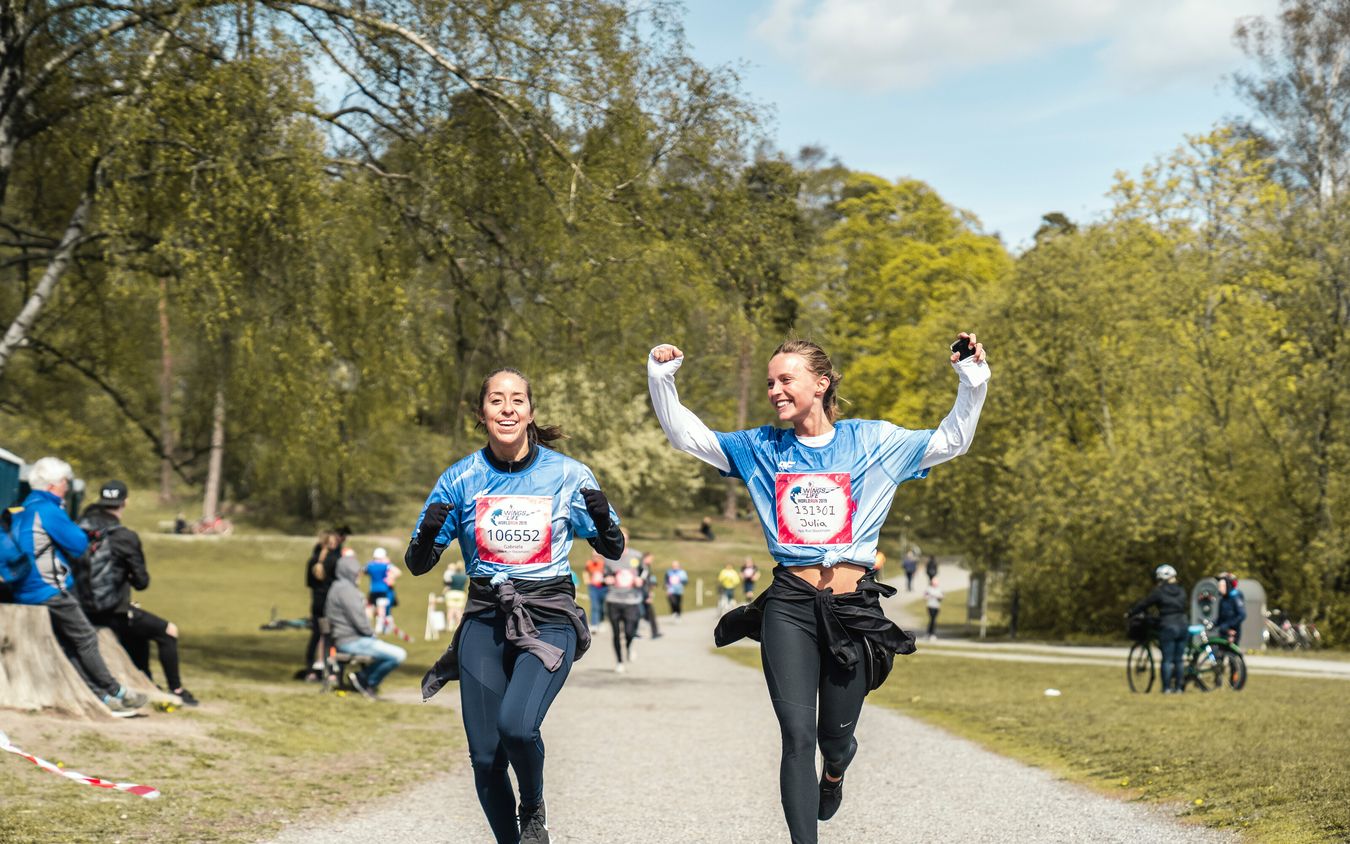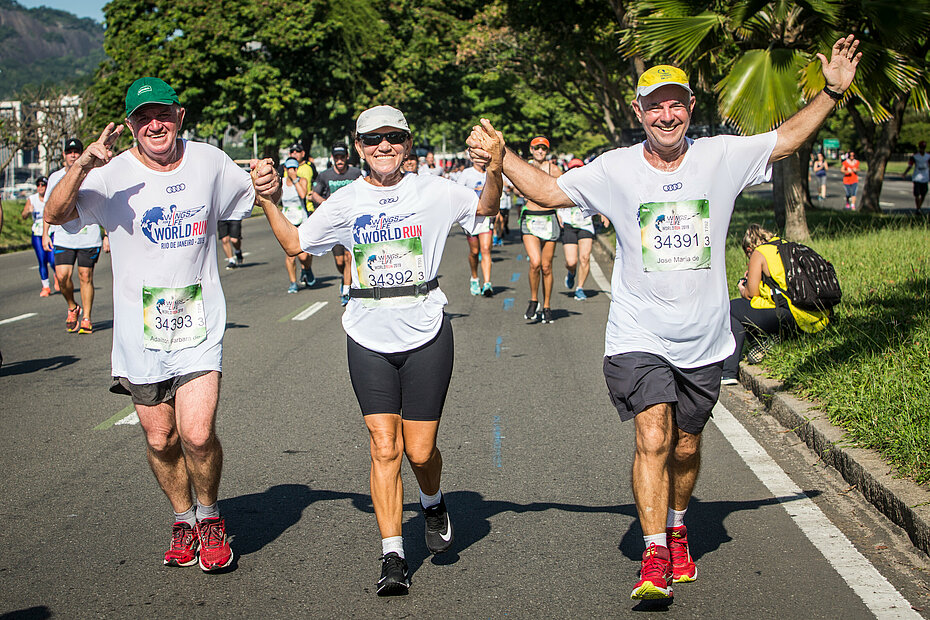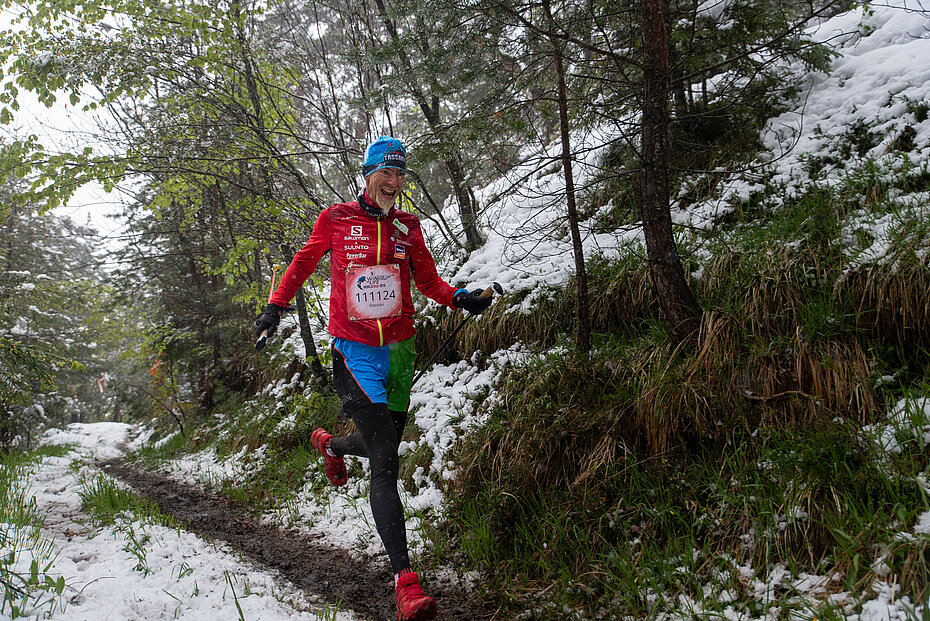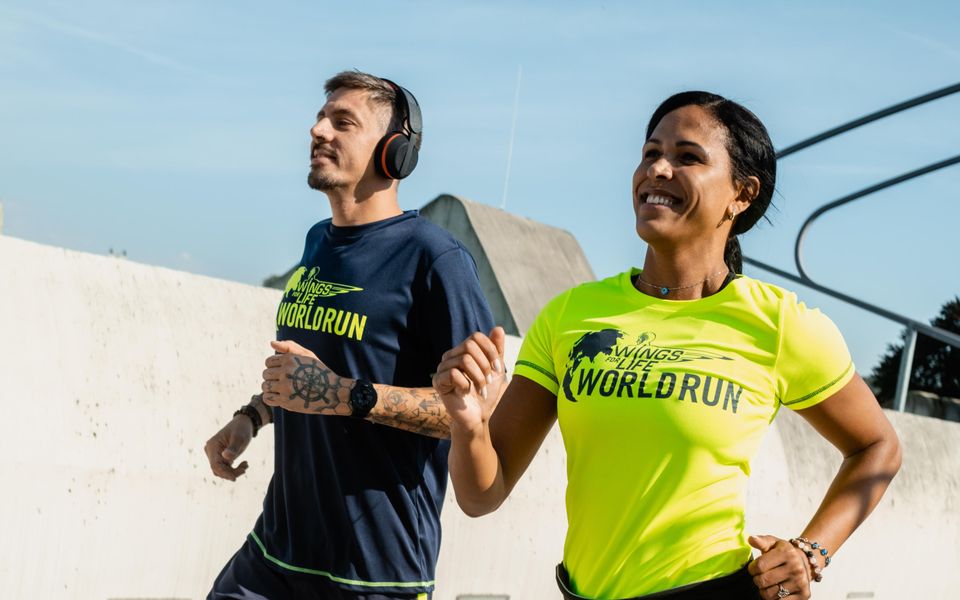Running is out of this world. Fact.

Since 2014, you guys have run to the moon and back eight-plus times. So we thought it would be fun to grab an out-of-this-world chat with NASA and ESA scientists who are experts in how space travel affects the body and what Earth dwellers can learn from it.
Former European Space Agency physiologist Dr. Rebecca Forth and her twin sister, one-time NASA fellow Dr. Katharine Forth spent years studying space’s impact on astronauts, and on the way, they learned some surprising benefits of running that will keep you motivated even after May 3.

Run away from aging
“Space flight shows a sped-up version of aging,” says Rebecca. “Living in micro gravity, even the fit, healthy bodies of astronauts lose muscle tissue, bone density and balance. It gets worse the longer they’re in space.”
“And just as micro gravity affects astronauts, our bodies age the more we sit and the less we do,” says Katharine. As you age, you lose muscle mass and bone density, but running increases both – so running keeps your body young.
This is something the Forth twins know all about because these two remarkable women are also international Ultimate Frisbee athletes. “Even at 44,” says Katharine, “my fitness is as good as the rest of the younger players’. Thank you, science!”
Run to exercise your brain
An added boost is that running is also great for your brain. “What I find most exciting is sensory motor control,” says Katharine. “With every step we run, our body and brain get more data to process.
“At a walk, there’s time to process our environment, so reactions can slow. At a run, that window is much smaller, forcing reactions to be faster – the quicker we are, the better our sensory motor control and the stronger the brain.”

Run to stay balanced …
… mentally and physically!
At NASA, Katharine’s team explored how well astronauts balance and stand on their return to Earth’s gravity. The answer is not well.
“When they land, their balance is so bad they aren’t allowed to drive for a couple of months – imagine flying a shuttle and walking in space, then not driving home,” said Rebecca.
“Otherwise,” agreed Katharine, “the body is an adapting machine, mainly thanks to the feet.
“The feet tell the body what we’re standing on and how slippery or stable it is. Feet help us adapt to our environment and react effectively, so we don’t fall.”
Lunge, dance and run up hill … backwards
Katharine loves running backwards – up a hill – because it pushes her body to think differently and exercises muscles regular running just can’t reach.
“We sit, stand, walk and run, but all these things are in a single plane of motion. We need to move outside that plane – think lunging and dancing – to tune the body and force it to adapt effectively.”
Great news is that both Katharine and Rebecca say sprinting is really good, too. So get your Runner’s World Germany training plans to be 100% ready for your Catcher Car sprint. And get out there to run for your brain, for your youth and for those who can’t on May 3!


